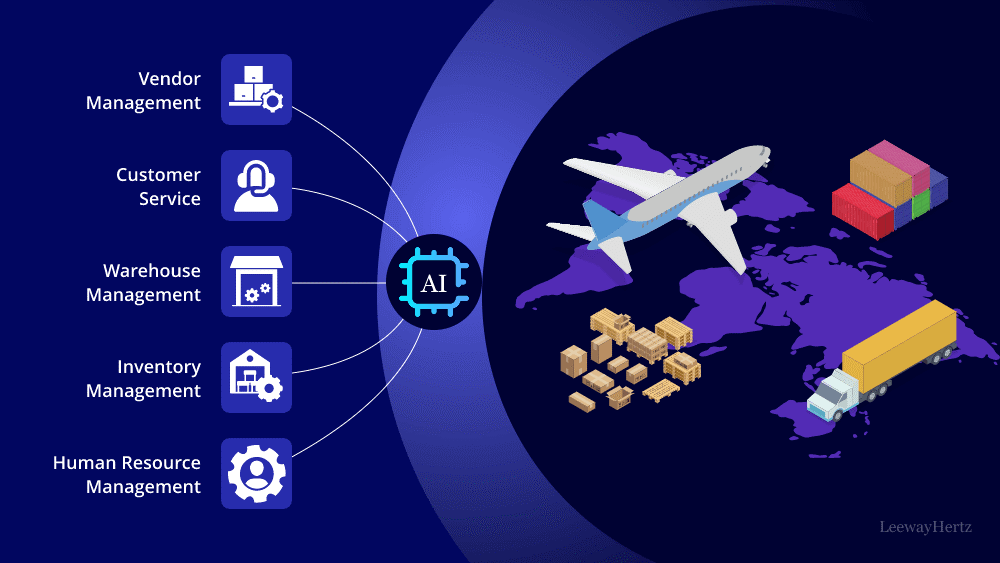Logistics is defined as either “the activity of organizing the movement, equipment, and accommodation of troops”, or “the commercial activity of transporting goods to customers” by Oxford Languages.
In both of these cases, logistics requires planning, warehousing, employees and sufficient equipment to move something (or someone) from A to B.
The industry of logistics isn’t new, as merchants moved items from A to B via ships or carts thousands of years ago, but even old industries are constantly experiencing change, as efficiencies need to be lifted in order to bring down expenses, increase volumes, and so on.
In the world of logistics, AI will have the following impacts:
- Many different tasks can be automated, such as sorting packages or labelling items. This will help bring down expenses and increase speed, while there is also the possibility that fewer errors will occur thanks to the help of AI. Consulting firm McKinsey, for example, believes that errors can be reduced by up to 50% thanks to the help of AI.
- Predictive algorithms will allow for easier warehousing, as companies will have better insights into what level of inventory is needed at specific times. This will reduce working capital requirements and thus improve capital returns.
- We have already looked at how AI can impact traffic, e.g. due to smart traffic lights, which will naturally impact logistics as well. AI will also help logistics companies in optimizing their routes, thus reducing the time it needs to move things from A to B while reducing costs at the same time. This does not only hold true for road traffic, but routes of ships, airplanes, and so on can also be analyzed with the help of AI, which will allow for optimization in those areas too.
- For logistics service providers, AI will also help with customer service, HR tasks, and so on, bringing down expenses across the entire operation.

(source: LeewayHertz)
How To Benefit from AI In Logistics
Investors can choose among some of our Artificial Intelligence picks to benefit from the broad Artificial Intelligence MegaTrend. Artificial Intelligence usage in the logistics space will help drive broad AI adoption and should thus be beneficial for AI-focused companies, such as NVIDIA (NASDAQ: NVDA) or QUALCOMM (NASDAQ: QCOM).
When advanced algorithms are being deployed, there is a good chance that they run on NVDA’s chips. Likewise, if sensors gather data that is used for predictive algorithms, there is a good chance that QCOM is involved via its connectivity solutions and vast patent portfolio.
Investors can also opt for logistics pure plays with Artificial Intelligence exposure, such as FedEx (NYSE: FDX). While FedEx isn’t an AI, it’s increasingly using AI across its operations. FedEx recently introduced FedEx Surround, which aims at giving customers highly advanced insights into their supply chains.
Thanks to FedEx Surround’s AI-powered solutions, customers are able to track parcels more closely than ever before. For customers, this means safer supply chains and lower risk of failing to deliver goods to their customers.
Fraught and theft prevention are other advantages from FedEx’s artificial intelligence usage. For investors looking for a logistics pure play with AI exposure, FedEx could thus be interesting, while those seeking broader AI exposure may want to go with the “classics,” such as NVIDIA.

